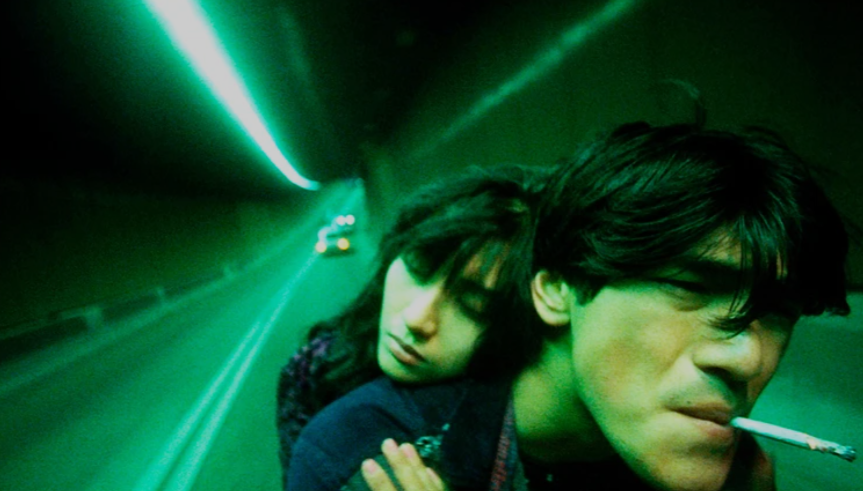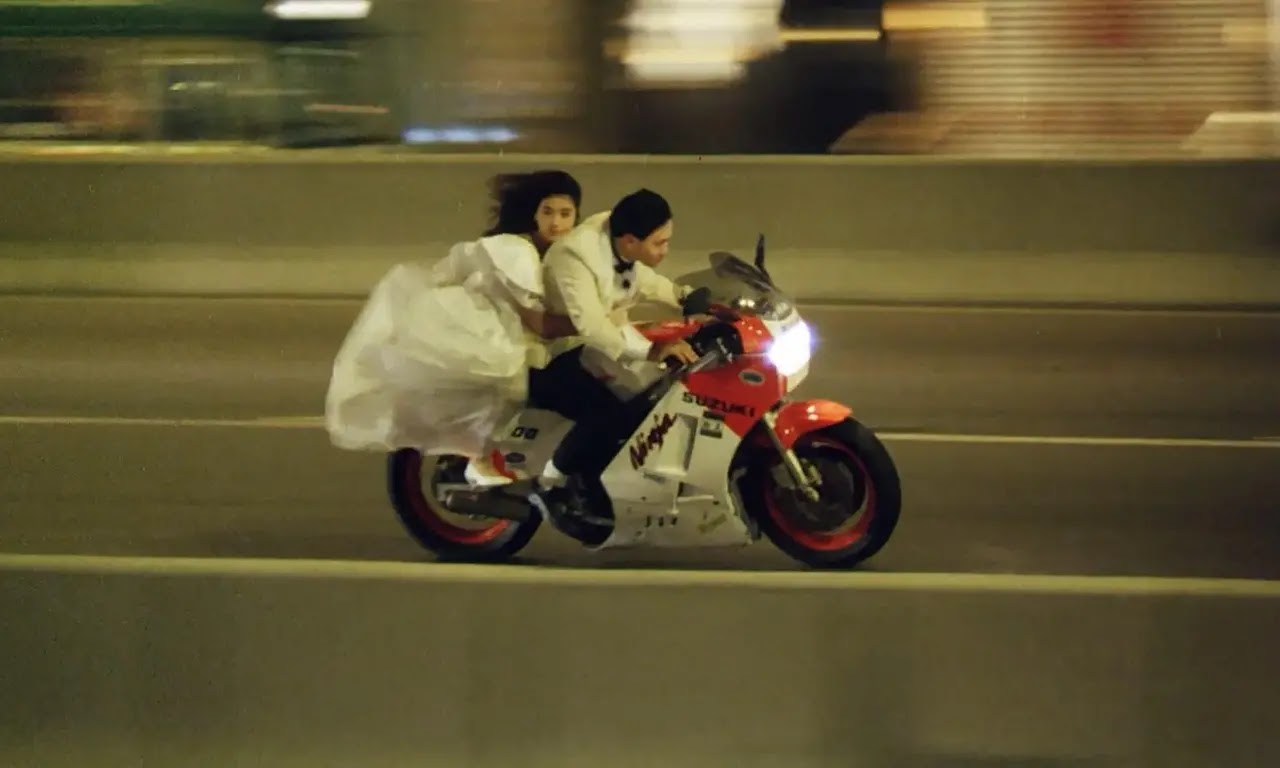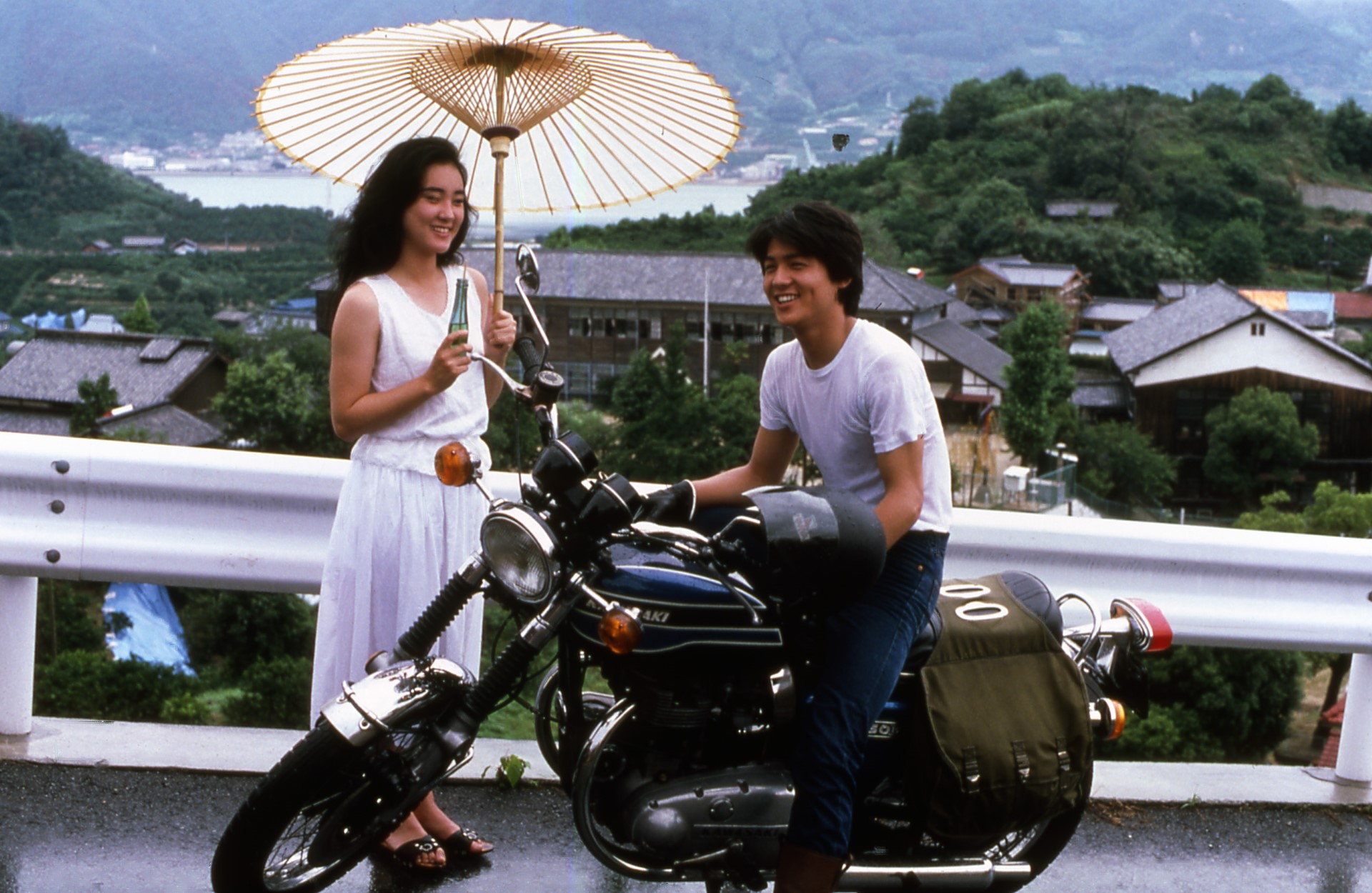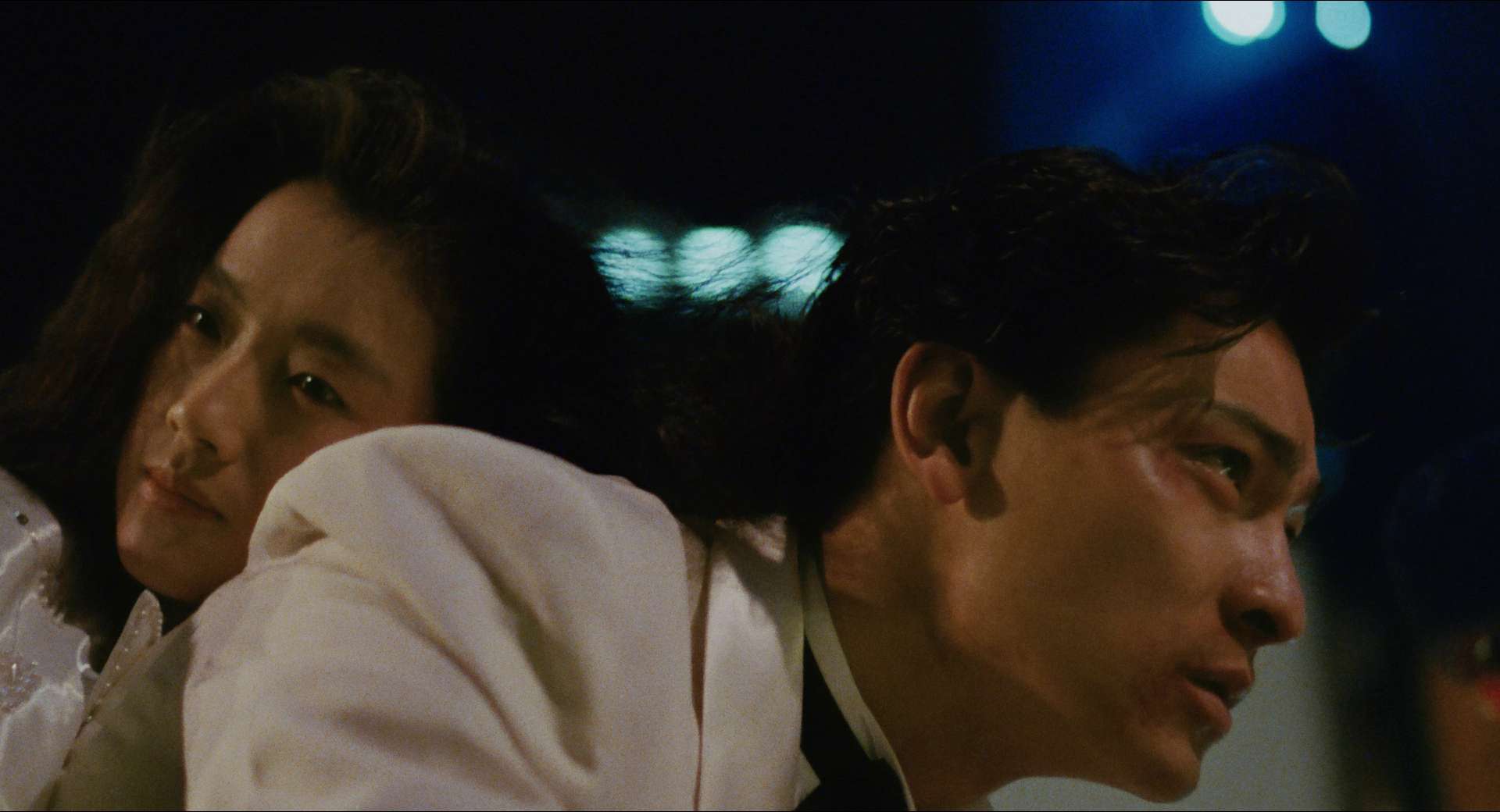By Athina Varvesioti,
“But at that moment, I felt such warmth” are the killer’s agent’s (portrayed by Michelle Reis) closing words in Wong Kar-Wai’s Fallen Angels, as she is riding on a motorbike with He Zhiwu (portrayed by Takeshi Kaneshiro), before the credits begin to roll. Underneath the neon green lights, in what can be characterized as a moment of closure for the viewers of the film, the two protagonists feel secure and warm, despite the fact that they have never even been properly introduced to each other. Something about being in such close proximity to a person and having your arms wrapped around their waist while they are taking you on a ride across the streets of the crowded, iridescent city feels like a personal haven.
Perhaps it does not matter whether you have been acquainted with a person your entire life or thirty minutes, for there seems to be an immediate spark between characters whenever a ride on a motorbike comes to play. Even if one or all of them feel lost and undesirable among the millions of people around them, the night has a way to bring about major changes in the way they perceive themselves and the world surrounding them. He Zhiwu does not quite know how to proceed with his life after having lost his beloved father, and yet the bars and streets of Hong Kong have their way to alleviate his pain and grant him a moment of sheer happiness and affection. The woman whose presence he spotted every now and then, with zero conversation taking place between them, turned out to be the one who comforts him merely by just being there, right behind him on his motorbike.
Michelle, in a similar manner, emerges from a distressing situation, feeling betrayed by her long-time partner in crime, Wong Chi-Ming (literally –they are hitmen), whom she inevitably caught feelings for. Although she has come to terms with this loss and the frustration that ensues, there is a void that lingers and slowly consumes her; the comfort He Zhiwu offers her by taking her on his motorbike feels like a means of escape, even if it lasts for a few minutes; the road would not be very long, as she says. As the night fades away and dawn signals the beginning of yet another day that might bring about more disenchantment, at least they have each other.

It is truly captivating, how much power motorbike rides carry in the world of cinema. Individuals who have never experienced genuine feelings of freedom, of affection and security suddenly see the world in front of them acquire the most vibrant colours and their life turn into a feast of emotions, none of which weighs them down. All these transformations just by enjoying a ride with a person they somehow feel a profound connection to! Liberation has the sweetest taste once a dear to us person reveals the path to it. Indeed, as the night-time breeze blows against their faces, and as the city looks more appealing than ever, bonds are created between perhaps the most unlikely pairs. Moments like these remind us that the grief is never ending, but so is the love.
When love takes the form of a rebellious act rather than a sentiment that occurs naturally and appears right to everyone, motorbikes often stand as a symbol for this rebellion. Going against the rules has never felt better, and this is evident in Benny Chan’s dreamlike exploration of the limitations –or the lack thereof– of love affairs, A Moment of Romance. Wah Dee (portrayed by Hong Kong’s giant Andy Lau), a young Triad member, takes as his hostage the upper-class Jo-Jo (portrayed by Jacklyn Wu Chien-Lien), after a jewellery shop robbery. They gradually fall for each other, despite acknowledging the repercussions of such a romance, which can be harmful to both and their environment.
There could have been hundreds of ways to depict this forbidden romantic relationship in film, and yet the director wisely chooses to have his two polar opposite protagonists ride on a motorcycle together, in the most wondrous scene of its entirety. With the motorcycle effectively functioning as an equivalent to riot, the two lovers embark on a short, yet filled with passion trip which offers them both a temporary and yet incredibly powerful sense of freedom, which they have been deprived of due to their circumstances. Jo-Jo lays her head on Wah Dee’s shoulder, and for a moment the world around her stops spinning, the voices opposed to her emotions cease to be heard. There is no one but her and her lover in the universe at that given time, and the intimacy between them seems to reach its peak. It must be miraculous to dispose of, even momentarily, every concern that drags her down and cherish such a tender experience; she would not have wanted it any other way. In their own way, the lovers defy stereotypes and conventions that mean to wreck their affair; the motorbike ride serves as an allegory for this escape.

Sometimes, taking into consideration their association with gangs and thus with criminality and recklessness, motorbikes can be viewed as a metaphor for the romances and shenanigans of youth. The madness and carelessness that often permeate younger generations are loosely, but provably connected with acts of rebellion against societal norms and regulations. This exact recklessness of youth and the beauty of this feeling of liberation that this age grants us is what Nobuhiko Obayashi wished to deliver in his own cinematic terms with his hidden gem, His Motorbike, Her Island. Koh (portrayed by Riki Takeuchi), a motorbike enthusiast slowly falls in love with Miyo (portrayed by Kiwako Harada), after teaching her to ride. However, he soon enough begins to worry that she will crash his motorbike, in spite of her being a biker prodigy.
Koh has always perceived his motorbike as an extension of himself, a crucial part of his identity as a young biker prodigy himself. Seeing a woman he is infatuated with ride his motorbike, he realizes that there is more to being young than his vehicle, and surrenders himself to one of those carefree romances that occur at the pulp of one’s youth. While often considered frivolous and pointless, such romances that spring from the desire to share your dearest things and interests with another person hoping they will truly care are in fact pure and come straight from the heart. Letting Miyo ride his beloved motorcycle feels like the ultimate act of rebellion for him, and the film itself sets out to portray, in the warmest colours possible, the concept of rebellion adorned by the brush strokes of Eros. And as soon as they ride together, they both realize that there is something more profound developing between them, than just a shared love for motorbikes. It is the desire to be close to each other, to learn about and from each other. In Miyo’s face, he can see his escape from boredom, and this flame that will make his life more compelling. Life acquires its brightest colours once shared with someone, after all.

In the end, there are many ways to portray intimacy between two individuals in a film; the fact that many directors opt for a motorbike ride illuminated by the city lights certainly tells us something.
References
- Fallen Angels | “Lonely Nights and Eating Alone”. Bright Wall/Dark Room. Available here
- Film Review: A Moment of Romance (1990) by Benny Chan. Asian Movie Pulse. Available here
- His Motorbike, Her Island: Becoming the Wind. Short Ends. Available here
- There’s Much More to the Director of HOUSE than Killer Pianos. Merry-Go-Round Magazine. Available here




